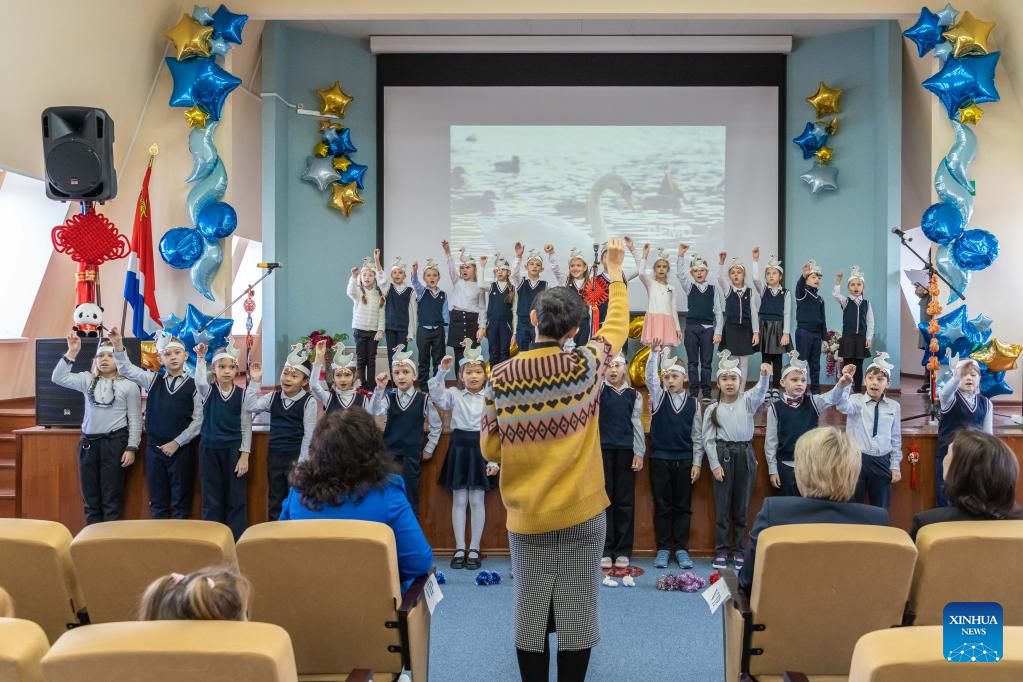Chinese language increasingly popular in Russia's Far East

Students learning Chinese language recite the Chinese poem "An Ode to the Goose" in Vladivostok, Russia, Dec. 1, 2022.(Photo by Guo Feizhou/Xinhua)
The Chinese language is gaining more popularity in Russia's Far East as more young Russians are taking Chinese lessons, Liu Congying, director of the Confucius Institute of the Russian Far Eastern Federal University, has said.
"The demand for Chinese-speaking talents is growing quickly in the fields of economy, science and technology," Liu said at a Chinese language learning-related event on Thursday, highlighting a 50 percent jump in the number of students enrolled at the Confucius Institute by November from a year ago.
Arguments and Facts, a Russian newspaper, predicted that the demand for Chinese language talents in Russia will increase by 55 percent in 2022.
Chinese is, only after English, the second most popular foreign language that the job market is hunting for, especially in jobs related to trade, procurement, translation and sales, Russia's job search website SuperJob reported.
The increase in demand for Chinese-speaking talents has also been observed in closer economic and cultural ties between Russia and China.
In the first eight months, two-way trade between Russia's Far Eastern regions and China shot up by 45.5 percent to 12.1 billion U.S. dollars; trade between Primorsky Krai, of which Vladivostok is the capital city, and China increased by 31 percent to more than 5 billion dollars in the first three quarters of this year.
The increasing demand for Chinese-speaking workforce also pushed up the number of university students registered for Chinese classes. Take Far Eastern Federal University in Vladivostok, more than 1,300 students are learning Chinese in 2022, compared with some 700 in 2019.
In total, Liu said, the Confucius Institute has trained more than 20,000 Russian students since its founding more than 20 years ago.








